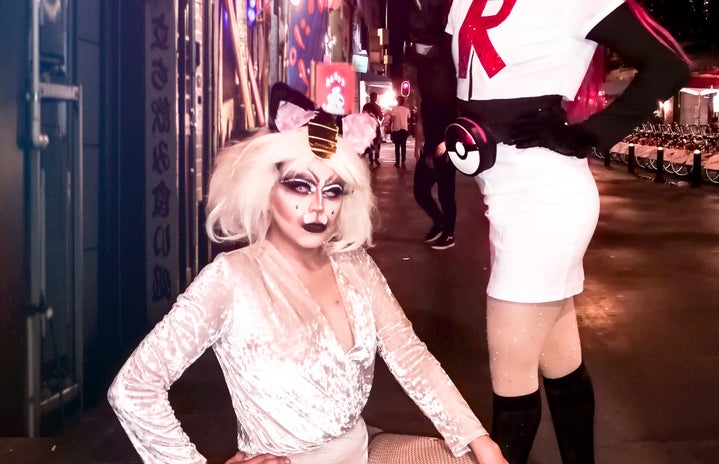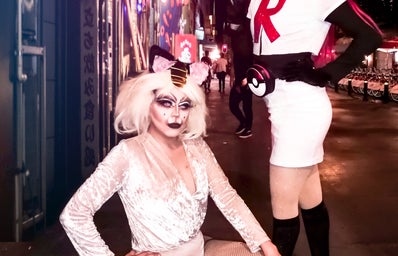Drag is the act of intentionally dressing beautifully, extravagantly, and in the most authentic way one can for a live performance of any kind, usually with some form of music accompanying the show. Drag artists tend to engage audience members, treating them as a regular part of the stage show and accepting tips from them throughout their acts. The art has suffered an ostracization that in some ways still remains. It has definitely experienced a greater acceptance since the inception of drag balls. These balls were nights full of glam and luxury hosted in the home of William Dorsey Swann, a formerly enslaved drag queen who opened up her home to other formerly indentured, marginalized people seeking a place to be self-expressive without violent repercussions. At the time, the deniability of Black personhood made it impossible for this to occur in a public place. Thus, Swann held these events in the House of Swann, facing police raids and imprisonment as a consequence until he retired from a fruitful life of activism. His spirit lives on through a collective memory and many drag organizers today are continuing the work that he started when it came to freedom of expression and the normalization of drag.
“Performing arts” is a term that encompasses song, dance, and dramatic productions before an audience. These three elements are fundamental to drag yet its name is often excluded from this traditional interpretation of the phrase. These exclusionary practices make it difficult for drag artists to be treated seriously and contracted as much as their counterparts in those validated forms of performance despite the fact that they follow the same conventions. These inhibitors keep certain artists from pursuing drag full-time.
Deja DuBois is a drag queen who has performed in a number of venues across the Dallas-Fort Worth metroplex. She shares that in the drag industry, professionalism is just as important as it is in the corporate world. “That means being on time, being respectful, being communicative, and being a beacon of positive energy for those that surround you,” the queen states and adds that professionalism also comes with working out of compassion. This means being able to ask for extra time, help with hair and makeup, and other graces. DuBois makes it clear that, in the name of sisterhood, these privileges are granted when possible but they should not be abused — “so when we say be ready… be ready.” Solidarity is imperative for performers who are underrepresented and underpaid, especially when they work in an already income-challenged trade.
Los Angeles and New York are the current hotspots for drag performers where the pay can be lucrative and more accepting environments are fostered. These are only two cities in the entire fifty states that are widely recognized for this kind of inclusivity so it is not difficult to see how easily drag artists can be shunned at a great external level.
The amount of money that performers leave with at the end of the night varies by venue, previously agreed upon forms of payment (hourly, tips, etc), and the popularity of drag in certain locations. In areas where the drag scene is not as widespread, attendees may not be as willing to offer tips or, in other cases, have a loose hand when it comes to tipping given the rarity of drag shows in their local venue.
The drag industry is not experiencing a dwindling given the increasing demand for these performances in clubs, bars, brunch spots and the increasing number of people who are open about their participation in the art. However, the fact remains that they are not paid as lucratively as other singers, dancers or often provided a spot during peak hours. There are calls to reform these practices so that tips are not the bulk of what entertainers depend on as primary payment and so that they can establish themselves as concrete members of the performing arts. Changes to these current norms would elevate the viability of drag as a main source of income. But how long before venues and event organizers act on this urgency and begin broadening their definition of (profitable) “talent”?

